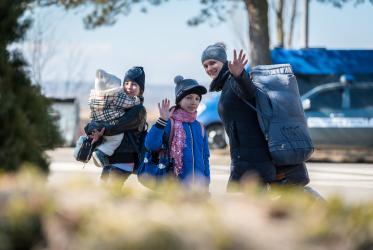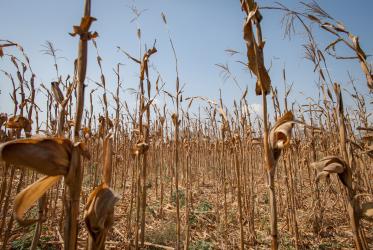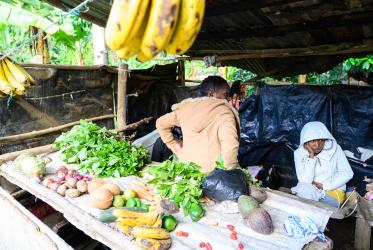In Landskron, Austria, where I am a pastor of the Lutheran Church in Austria, we have a dynamic, growing and socially engaged congregation. Our town hosts hundreds of refugees and asylum seekers from various countries. While their papers are being processed, they are not allowed to work.
In our interactions with the refugees and asylum seekers, they have expressed their frustration at not being able to use their time fruitfully. Most of them miss working, and the contact with the land.
As a way to address these concerns, our congregation has opened its community garden – “Rainbow Land”, right next to our church – to refugees and asylum seekers.
They can rent plots, at a nominal fee, for one season. Families and individuals have made use of this facility. They plant and nurture the plants in their plots, alongside members of the congregation. They harvest and share the fruits of their labour with their communities and friends. While working and nurturing their garden, they come in contact with and relate to the local community.
Austrians and people from over 15 nations share the “Rainbow Land”. By tilling the soil and working on their plots, the people become rooted in the land. By sharing the land, resources and produce, the walls of suspicion and fear between communities crumble. “Rainbow Land” has become a meeting place where people can learn from each other and share their experiences and gifts.
To listen to similar experiences and to strengthen our work, in September this year, our congregation hosted a nation-wide meeting with representatives of community gardens. It was a fascinating gathering, to learn from each other and to strengthen our initiatives.
During this Churches' Week of Action on Food, it is our hope that Christian congregations the world over will become welcoming gardens of Eden.





